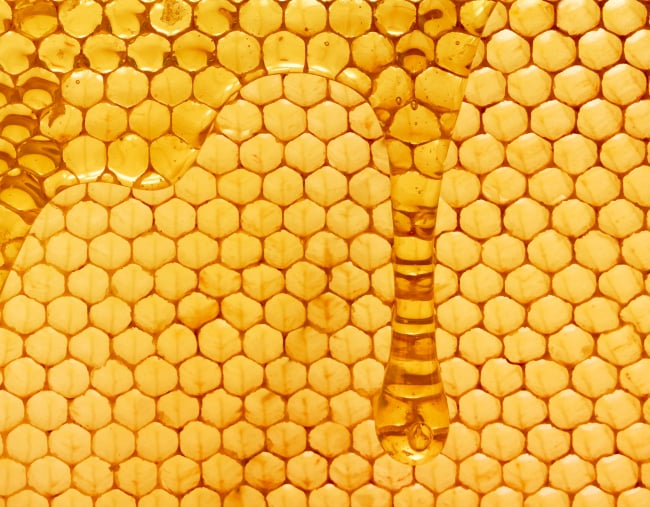
Uh oh. That may not be honey in your honey jar.
Researchers have determined that almost half the honey sold on Australian supermarket shelves is fake honey.
The research, from Germany’s Quality Services International lab, found impurities in the jars using Nuclear Magnetic Resolution (NMR) testing – this is different to the official Australian test, but Phil McCabe, the president of the International Federation of Beekeepers’ Association told a joint ABC-Fairfax investigation it is the most accurate.
Twenty-eight blended and imported samples from across supermarkets in Australia, including Coles, Woolworths, ALDI and IGA were examined in the research. Of these, 12 were not 100 per cent pure honey.
These included four out of six IGA Black and Gold private label products, two of six ALDI Bramwell’s private label brands and six out of eight of Capilano’s Allowrie budget branded bottles.
Fairfax Media and ABC shared the results with Capilano which denied any of its products are not pure honey, and rejected NMR testing as a way of determining purity.
The report does not suggest Capilano’s Australian-sourced honey had any issues, or that Capilano and other brands were aware of the issue.
So if you don’t have real honey… what the heck did you buy from the supermarket?
What is fake honey and what is in it?
Fake honey is anything that is not 100 per cent produced by clever little bees.
The Australia New Zealand Food Standards Code defines honey as the natural sweet substance produced by honey bees from the nectar of blossoms, which the bees collect and transform themselves within the beehive into honey.
Be Fit Food dieticians Kate Save and Laura Ballantyne told Mamamia that honey is adulterated with inexpensive sweeteners such as corn syrups, high fructose corn syrups and acid inverted sugar syrups. It can also be adulterated with natural syrups such as maple, cane sugar and molasses.

Top Comments
Capilano have been suing small beekeepers who expose this for ages. If you're interested there are groups like Save The Bees Australia who have been fighting them in court for while who would be happy to accept a donation to fund their cause (and will send you a cute little bee button).